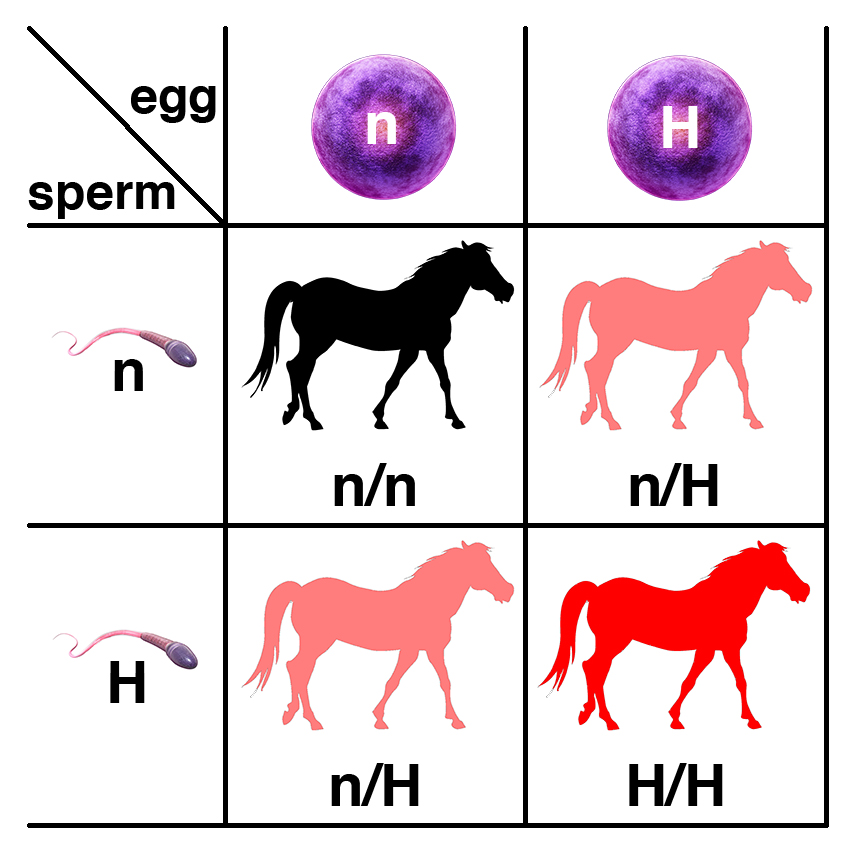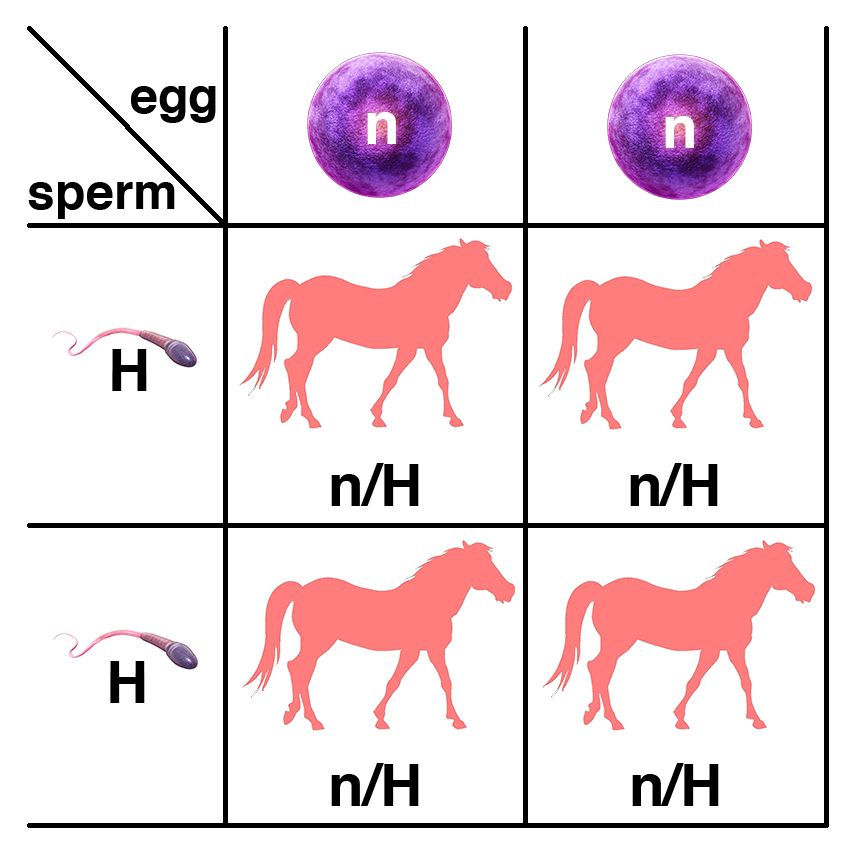| Contents |
|---|
| Hyperkalemic Periodic Paralysis (HYPP) |
| Summary |
| Understanding the Results |
| Disease Name and Genes |
| Inheritance |
| Resources |
| Citations |
Hyperkalemic Periodic Paralysis (HYPP)
Summary
Hyperkalemic periodic paralysis (HYPP) is an inherited disease that causes sporadic episodes of muscle spasms, weakness, or paralysis in affected horses exposed to high potassium levels. Respiratory paralysis or heart failure may lead to death. It has been found in descendants of the American Quarter horse sire, Impressive, including Paints and Appaloosas of this lineage. Episodes may be triggered by stress, diet, lack of exercise, and recovery from anesthesia. HYPP is managed by a low-potassium diet, regular exercise, or drugs (acetazolamide, hydrochlothiazide, or intravenous calcium).
The known genetic cause of HYPP is an autosomal dominant variant of the SCN4A gene that encodes a sodium channel of skeletal muscle. The variant form of this channel fails to regulate potassium levels in the blood leading to uncontrolled muscle contractions. Homozygous horses (with two defective genes) are affected more severely.
Most affected horses are well-muscled halter show horses. Spontaneous muscle contractions in affected horses may cause this desired greater muscle mass. The American Quarter Horse Association requires genetic testing for HYPP and four other genetic conditions (GBED, PSSM1, MH, and HERDA).
Date of Last Update: 08/02/2016
Results
Understanding the Results
Results of the genetic test for HYPP are presented as shown below.
| Hyperkalemic periodic paralysis (HYPP) | ||
|---|---|---|
| n/n | Clear | This horse tested negative for HYPP and does not carry the SCN4A-F1416L mutation. |
| n/H | Affected | Both the normal and mutant alleles are present. This horse is positive for the SCN4A-F1416L mutation and is expected to develop symptoms of HYPP. |
| H/H | Affected | This horse carries two copies of the SCN4A-F1416L mutation and is positive for HYPP. The horse is expected to develop symptoms of HYPP. |
Disease Name and Genes
Hyperkalemic periodic paralysis (HYPP) is caused by a missense mutation in the SCN4A gene that encodes a sodium channel (SCN4A-F1416L). The F1416L substitution occurs in transmembrane domain IV near the cytoplasmic face of the membrane. This mutation causes potassium-induced paralysis associated with myotonia.
Inheritance
HYPP is associated with a dominant variant of the SCN4A gene (SCN4A-F1416L). The dominant allele is commonly abbreviated as H, with the recessive wild-type allele abbreviated as n.

A horse with one copy of the dominant allele (n/H) will have symptoms. If this horse is bred to a normal horse (n/n), each foal has a 50% chance of having one copy of the dominant allele (n/H) and a 50% chance of having two copies of the normal allele (n/n).

If two horses, each with one copy of the dominant allele (n/H), are bred, each foal has a 25% chance of having two copies of the normal allele (n/n), a 50% chance of having one copy of the dominant allele (n/H), and a 25% chance of having two copies of the semidominant allele (H/H). Because horses with one copy (n/H) or two copies (H/H) of the dominant allele are affected, each foal will have a 75% chance of being affected.

If a horse with two copies of the semidominant allele (H/H) is bred to a normal horse (n/n), all of the foals will have one copy of the semidominant allele (n/H) and will be affected.
Resources
Hyperkalemic periodic paralysis (HYPP) at UC Davis





